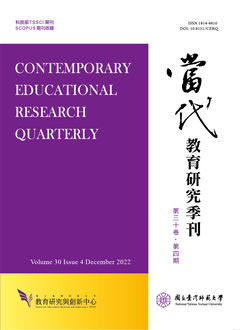

本研究主要依據社會控制理論、自我控制理論及社會學習理論的觀點,探討依附關係、低自我控制、接觸偏差同儕與青少年偏差行為的影響。本研究抽樣對象為台北市、新北市、台中市、高雄市、台東市及台東縣之國中學生,主要採用分層叢集隨機抽樣方式,有效分析樣本共734名學生,透過結構方程模式來檢定所搜集之數據。研究結果發現:(1)依附關係和青少年偏差行為、低自我控制、接觸偏差同儕間具有關聯。(2)間接效果分析顯示,低自我控制、接觸偏差同儕是依附關係和青少年偏差行為之中介變數。(3)而接觸偏差同儕是低自我控制和青少年偏差行為間之重要中介角色。依據研究的分析結果,文中就未來對青少年偏差行為之研究與輔導提出相關建議。
Drawing upon the social control theory, low self-control theory and social learning theory, this study tried to find how attachment, low self-control and deviant peer would influence juvenile delinquency. Sample of the study consisted of 734 junior high school students from Taipei City, New Taipei city, Taichung City, Kaohsiung City, Taitung City, and Taitung County by a random stratified-cluster sampling. Structure equation modeling was used to test the model. The results of this study found that: (1) attachment was related to delinquency, low self-control, and association with deviant peers; (2) as the indirect effects analysis showed, low self-control and association with deviant peers were the mediators for the relationship between attachment and juvenile delinquency; (3) association with deviant peers has a central role to play in mediation between low self-control and juvenile delinquency. Based on the research results, several suggestions for guidance and further studies were also provided.

本著作係採用創用 CC 姓名標示-非商業性 3.0 台灣 授權條款授權.
本刊國立台灣師範大學教育研究與創新中心
106台北市和平東路一段162號 | 電話: 02-7749-3670 | E-mail: cerecerq@gmail.com
教創中心 | 師大 | 電子報 | 線上投審系統
本刊由國家科學及技術委員會人文社會科學研究中心補助經費
© 2014 CERI-NTNU
